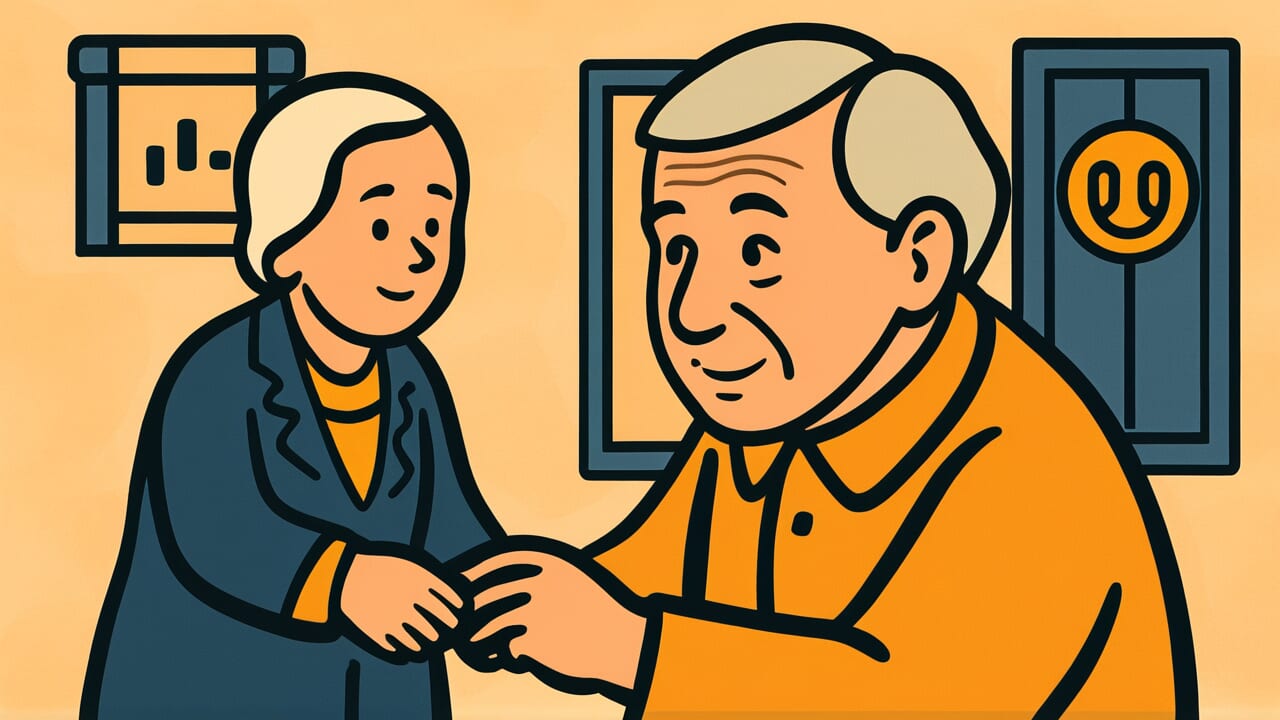How to Read “An eight-year-old elder, a hundred-year-old child”
Hassai no okina, hyakusai no warawa
Meaning of “An eight-year-old elder, a hundred-year-old child”
This proverb means that mental maturity and wisdom vary from person to person, regardless of age.
Some young people have deep insight and thoughtfulness. Meanwhile, some people grow old but can only think in childish ways and make shallow judgments.
People use this saying to warn against judging others by age alone. It’s also used to praise a young person’s excellent judgment.
Sometimes people use it to criticize an older person’s immaturity. The expression reminds us to see what truly matters instead of relying on age as an easy standard.
Even in modern society, we tend to evaluate people by years of experience or age. This proverb teaches us that true value lies within a person.
Origin and Etymology
The exact origin of this proverb is not clearly documented. However, scholars believe it emerged from Buddhist philosophy.
Zen teachings especially emphasize seeing the essence of things. They teach not to be distracted by external factors like age or social status. This philosophical view likely influenced this expression.
The contrasting phrases “eight-year-old elder” and “hundred-year-old child” create a powerful impression. They emphasize the reversal of age and spiritual maturity.
A child of only eight years called an “elder” for their deep wisdom. An old person of one hundred called a “child” for their immaturity. This extreme contrast vividly shows that age doesn’t represent a person’s true nature.
Japanese culture has long valued respecting elders. But at the same time, a strict view existed that simply growing old doesn’t make someone worthy of respect.
This proverb captures this Japanese value system perfectly. It conveys a universal truth: inner maturity, not external age, determines a person’s true worth.
Usage Examples
- That new employee just joined but makes excellent decisions. It’s truly “an eight-year-old elder, a hundred-year-old child”—age doesn’t matter.
- The department head has both position and age, but his thinking is immature. It’s a case of “an eight-year-old elder, a hundred-year-old child.”
Universal Wisdom
This proverb has been passed down for generations because it addresses a fundamental contradiction in human society.
We want to judge people by age because it’s visible and convenient. But human nature cannot be measured by such a simple standard.
Everyone wants to believe they naturally become wiser with age. We expect that gaining experience automatically brings deep wisdom. But reality is different.
Some people learn from the same experience while others learn nothing. Some young people have the insight to see the essence of things.
Meanwhile, some people live long but only understand superficial matters.
This proverb reveals a harsh truth. Human growth doesn’t happen automatically with time. It only happens through one’s own will and effort.
Growing older and maturing spiritually are completely different endeavors. Our ancestors made this distinction clear to ask us what true growth really means.
Anyone can grow old, but not everyone can grow up. Understanding this difference is the first step to living a rich life.
When AI Hears This
The brain rewires about 100,000 connections between neurons every day. Research shows this neuroplasticity continues even at age 100.
In other words, age itself doesn’t determine brain aging.
What’s interesting is that “patterned responses” rob the brain of flexibility. Even an 8-year-old who plays the same game daily and repeats the same responses strengthens only specific neural circuits.
In other words, the circuits they use become fixed and new circuits stop developing. This is similar to strength training where you only work the same muscles.
On the other hand, when a 100-year-old person learns a new language or tries an instrument for the first time, the brain desperately creates new synaptic connections.
Research on London taxi drivers confirmed that people who continue memorizing complex routes develop larger hippocampi. Regardless of age, the brain grows according to “necessity.”
This means the proverb was scientifically accurate. Aging isn’t the passage of time. It’s the result of choosing to avoid new stimuli and retreat into safe response patterns.
The brain is an organ that responds to challenges at any age.
Lessons for Today
This proverb teaches modern people to reconsider how we evaluate others. Do you judge people only by the age or years of experience written on their resume?
Do you dismiss young people’s opinions as inexperienced? Conversely, do you accept an older person’s opinion uncritically just because of their age?
What matters is not external information like age. It’s seeing what a person thinks and how they act—their inner self.
Listen to your young colleague’s proposal. It might contain a new perspective you’ve overlooked. At the same time, be strict with yourself.
Growing older doesn’t automatically make you wiser.
This proverb teaches the importance of constantly learning without relying on age. At any age, you can humbly learn and keep growing.
That is the true image of a mature person. Starting today, why not remove the colored glasses of age and develop an eye for seeing people’s true nature?



Comments